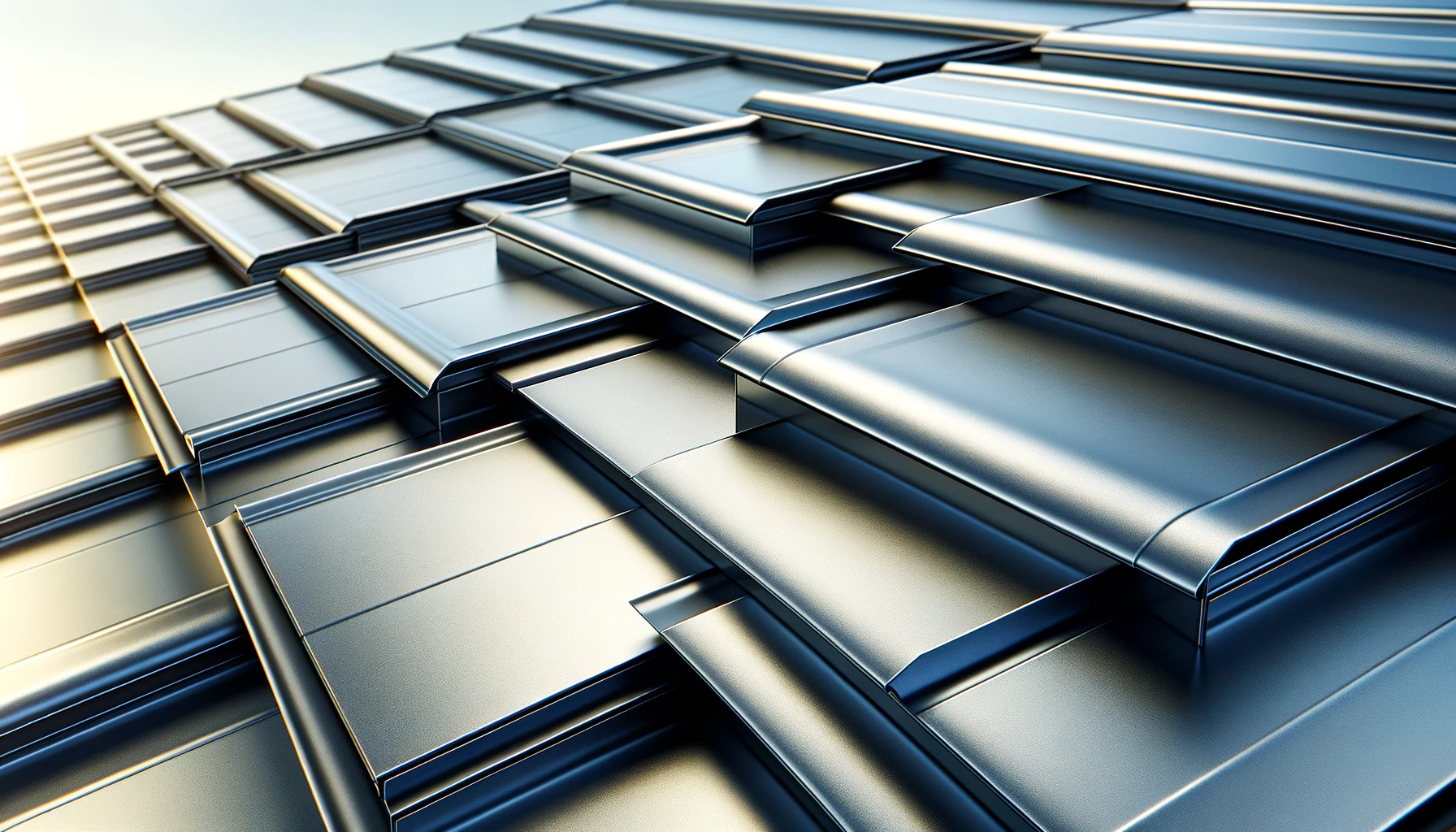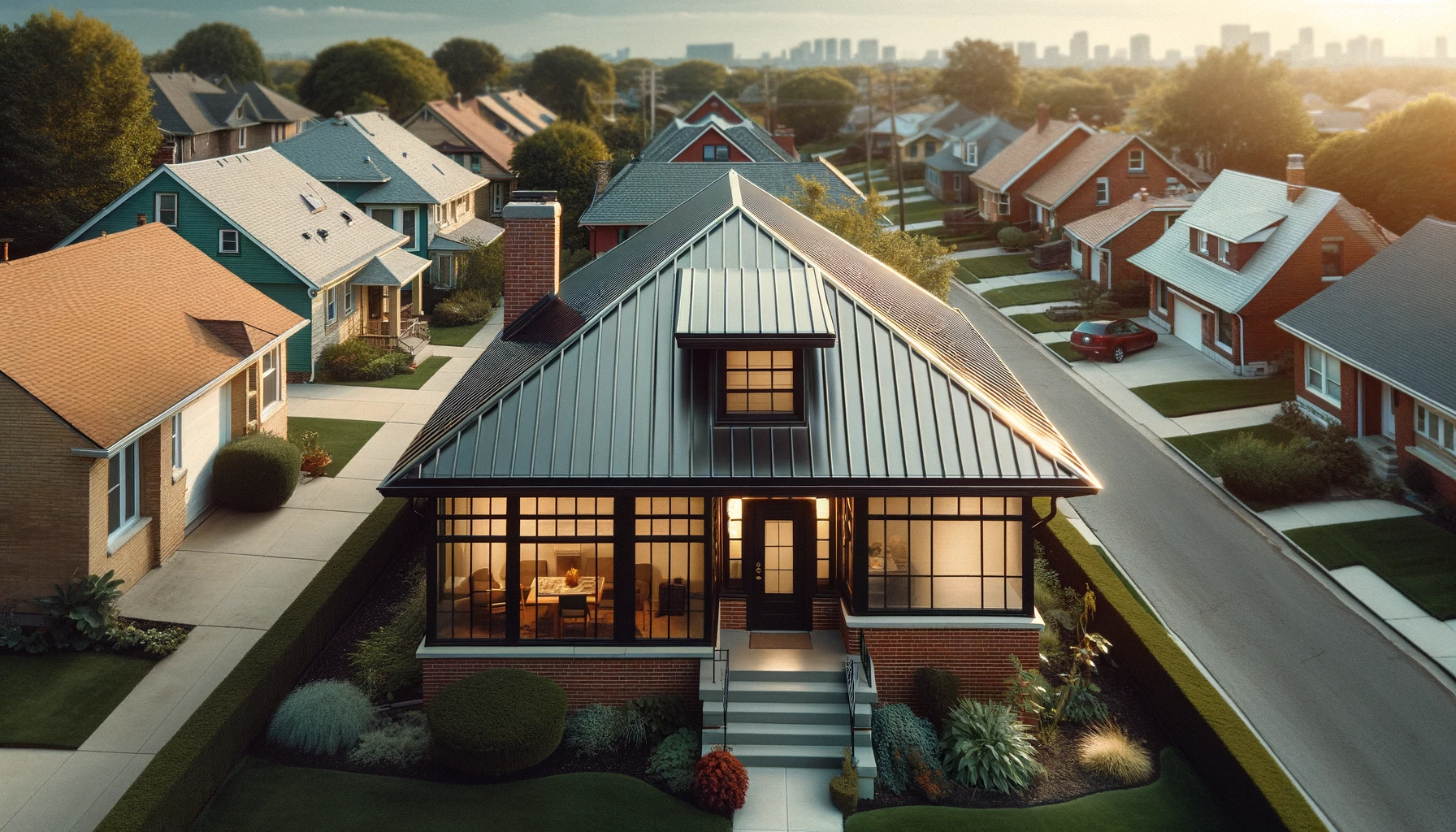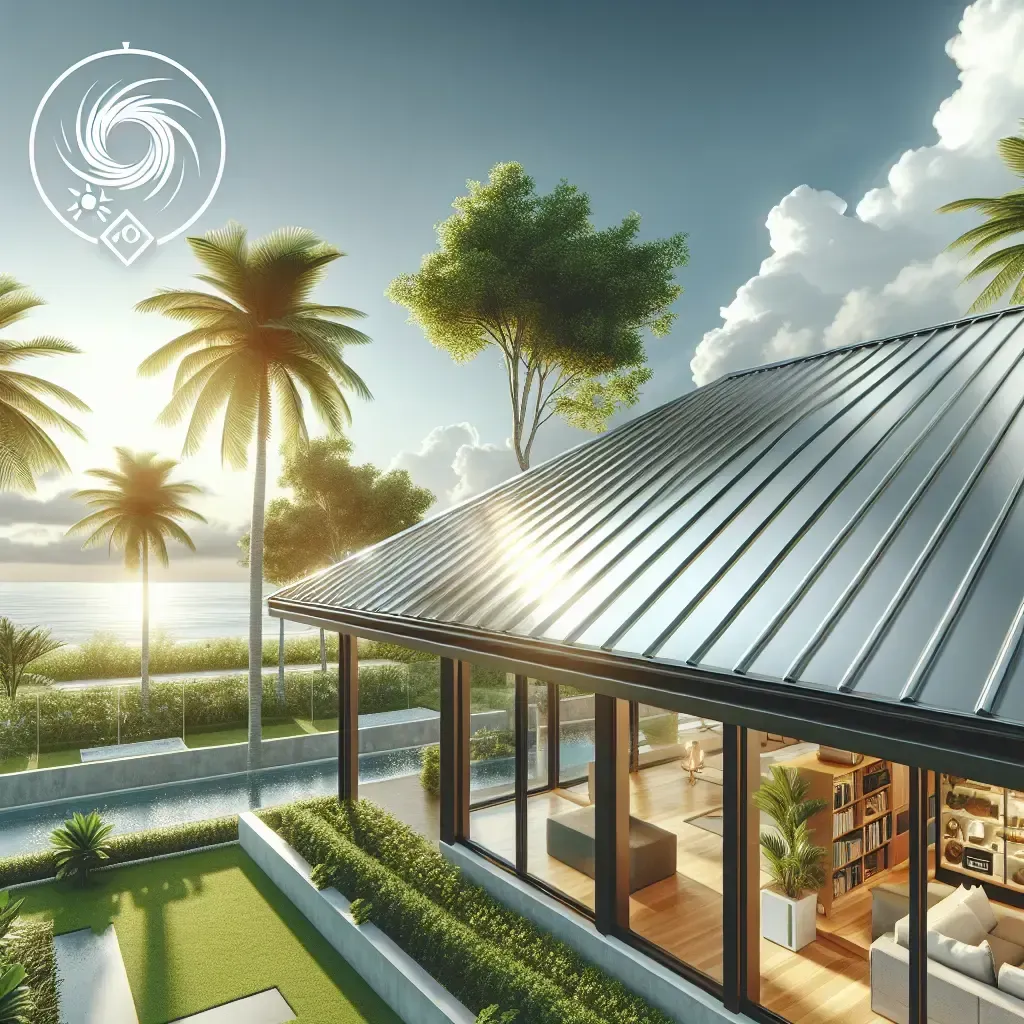Choosing the Right Metal Roofing Material: Pros and Cons of Steel, Aluminum, and Copper
Investing in a metal roof is an important decision that entails careful consideration of various factors, including the type of metal material best suited for your building’s specific needs and requirements. As a manufacturer of a variety of metal roof and wall panels for residential, commercial, and agricultural applications, we have extensive knowledge and experience working with different metal roofing materials.
In this blog post, we will examine the pros and cons of three popular options – steel, aluminum, and copper – to help you make an informed choice for your next metal roofing project.
1. Galvanized and Galvalume Steel Roofing: Affordable and Durable
One of the most well-known and widely used metal roofing materials is steel. Steel roofing is popular due to its combination of affordability and durability. Galvanized steel, made with a protective zinc coating, offers enhanced resistance to corrosion and rust. Meanwhile, Galvalume steel is coated with a blend of aluminum, zinc, and silicon, resulting in a material with higher corrosion resistance.
Pros:
- Cost-effective: Steel is among the most affordable metal roofing options, making it an attractive choice for those with limited budgets.
- Durability: Steel roofs can last up to 50 years or more, thanks to their impressive strength and resistance to weather-related damage.
- Wide range of options: With a variety of coatings and finishes available, steel roofs can be customized to match your aesthetic preferences.
Cons:
- Susceptibility to corrosion: Steel, particularly galvanized steel, can be prone to corrosion in coastal areas or environments with high moisture levels.
- Heavier than aluminum: Steel is denser and heavier than aluminum, which may require additional structural support during installation.
2. Aluminum Roofing: Lightweight and Resistant to Corrosion
Aluminum is another popular metal roofing material known for its lightweight nature and exceptional resistance to corrosion. This corrosion resistance makes aluminum a popular choice in coastal areas or other environments with increased exposure to moisture and salt.
Pros:
- Lightweight: Aluminum is much lighter than steel, which simplifies the installation process and reduces the need for additional structural support.
- Corrosion resistance: Aluminum is naturally resistant to rust and corrosion, making it a suitable option for challenging environments.
- Energy efficiency: Aluminum effectively reflects solar heat, contributing to a cooler indoor environment and reducing cooling costs.
Cons:
- Higher cost: Aluminum is generally more expensive than steel, which may be a limiting factor for some budgets.
- Malleability: While aluminum can easily be shaped into various designs, it may be more prone to dents and damage due to its softer nature compared to steel.
3. Copper Roofing: A Premium and Timeless Choice
Copper roofing represents the premium end of metal roofing materials, offering a luxurious and timeless aesthetic that cannot be matched by other options. Combining exceptional durability with a unique, eye-catching appearance, copper is a high-end choice for discerning property owners.
Pros:
- Unmatched beauty: Copper’s elegant natural patina sets it apart from other roofing materials, adding a distinctive touch to any building.
- Extreme durability: Copper roofs can last for well over a century, withstanding various weather conditions and offering superior corrosion resistance.
- Eco-friendly: Copper is a highly recyclable material, contributing to the sustainability of your roofing project.
Cons:
- High cost: Copper’s premium attributes come with a higher price tag, making it less accessible for those on a tight budget.
- Increased weight: Copper is heavier than both steel and aluminum roofing materials, which may require additional structural reinforcement during installation.
4. Factors to Consider When Choosing Your Metal Roofing Material
When selecting the metal roofing material that’s right for your project, it’s essential to consider various factors that can influence your decision. Some key factors to consider include:
- Budget: Your available budget will be a significant factor in determining the appropriate roofing material. Steel roofing tends to be more budget-friendly, while aluminum and especially copper roofs come with a higher cost.
- Environmental conditions: The location of your property and local climate play a vital role in choosing a metal roofing material. Properties in coastal areas or regions with high humidity may fare better with aluminum or copper roofing, which offers superior corrosion resistance.
- Aesthetic preferences: The desired look and style of your building will influence your decision. While steel and aluminum provide a wide array of color and finish options, copper offers a one-of-a-kind, luxurious aesthetic.
- Performance requirements: Different metals provide varying levels of energy efficiency, durability, and maintenance concerns. Analyze your specific requirements to determine which material best meets your needs.
Making an Informed Decision on Your Roofing Material
Selecting the right metal roofing material requires careful consideration of your unique circumstances and requirements. By understanding the pros and cons of popular materials like steel, aluminum, and copper, you can make an informed decision that meets your needs in terms of budget, performance, and aesthetics. Whether you are working on a residential, commercial, or agricultural project, choosing the right metal roofing material can have a long-lasting impact on your property’s value, appearance, and functionality. Consult with a reputable metal roofing supplier like us, Mid Florida Metal Roofing Supply, Inc., to ensure you receive the highest quality materials and expert guidance in making this important decision.
Share Our Metal Roofing News Articles
Related Posts




